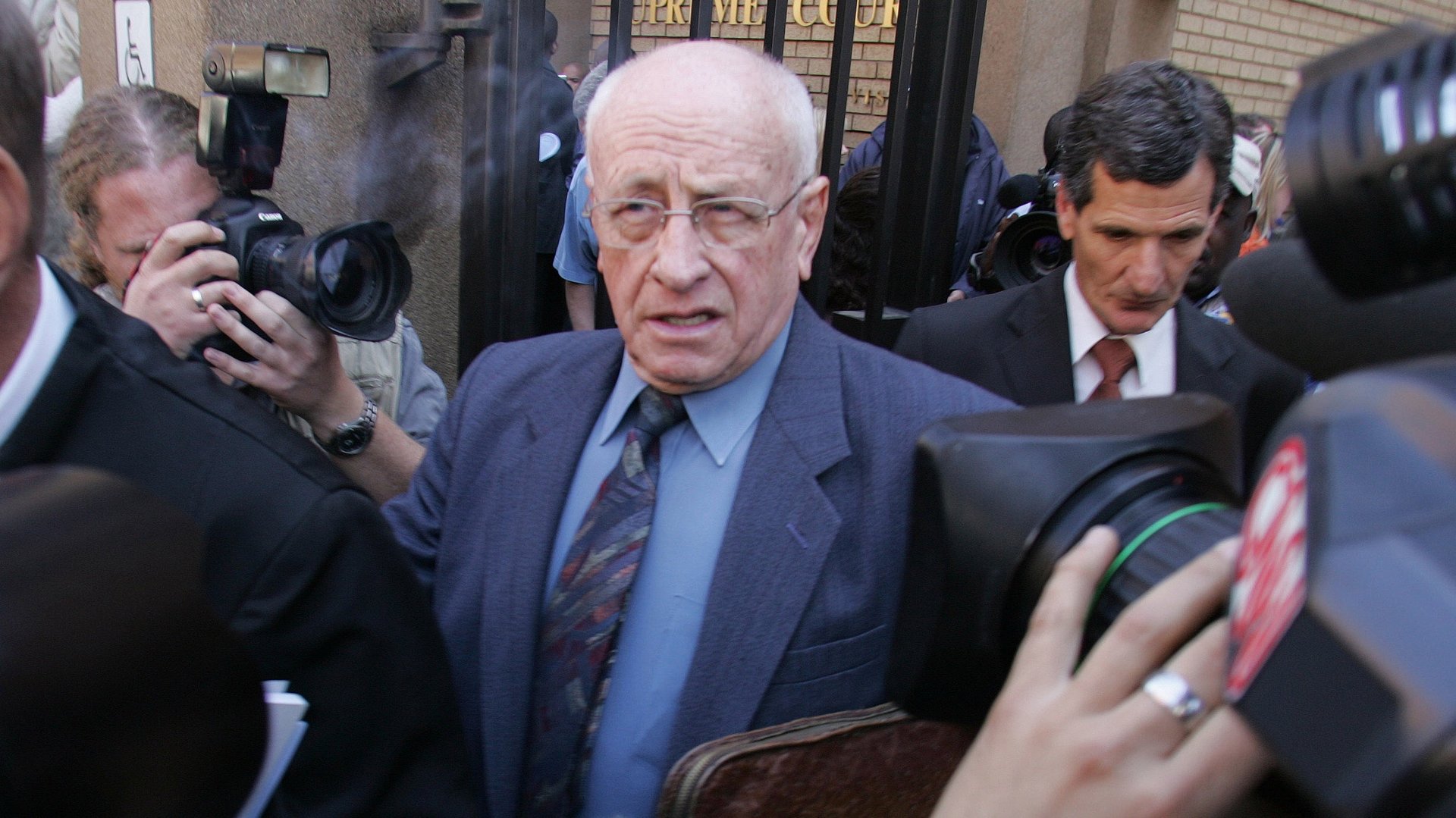Washing past victims’ feet won’t redeem this former Apartheid leader
Adriaan Vlok, the minister of law and order during the latter years of South Africa’s Apartheid rule was in the news again this week. This time for donating food to poor black South Africans.


Adriaan Vlok, the minister of law and order during the latter years of South Africa’s Apartheid rule was in the news again this week. This time for donating food to poor black South Africans.
A bit of background to understand why this good deed merits a news story. It’s because in his role during Apartheid, Vlok oversaw killings, torture and the kidnapping of innocent civilians and anti-Apartheid activists. When the curtain drew on South Africa’s Apartheid regime, Vlok made a name for himself as one of the very few Apartheid-era leaders to testify and apologize before South Africa’s Truth and Reconciliation Commission (TRC) in 1998.
But the most well-known and recorded event that catapulted Vlok into the public sphere was this odd gesture: washing the feet of Frank Chikane, an outspoken anti-Apartheid activist Vlok had tried to assassinate by lacing his underwear with insecticide in 1989. Vlok visited Chikane in 2006, then chief of staff to South Africa’s former president Thabo Mbeki, to ask for his forgiveness and to ask if he could wash Chikane’s feet—a gesture to mark the depth of his apology.
Since then, Vlok has held tight to his towel and bowl, washing the feet of a few other black men and women whom he wronged: his housekeeper, ten black taxi drivers and the mothers of ten young anti-Apartheid activists he killed. Vlok was spared jail for the charge of attempting to murder Chikane in 2007 because of his apology at the TRC, and his display of remorse.
A symbol for white repentance?
In recent years, Vlok, 77, now features in international and local media as a symbol of white repentance in post-Apartheid South Africa. Last year, he called for “Apartheid perpetrators” like himself to apologize, arguing that too many Apartheid perpetrators were “living quiet lives rather than seeking the forgiveness of their victims”.
This week, the AFP published an article detailing Vlok’s Good Samaritan deeds: he delivers free food twice a month in an impoverished township in Pretoria, and he lets a black South African man run a upholstery business from his garage.
It is hard not to look at Vlok’s acts with derision as a black South African. Behind the washing of feet and the donation of food to poor black South Africans is the myth that Vlok is redeeming himself from the grand acts of violence that he, and many others, committed during Apartheid.
It is this framing of Vlok as a symbol for white repentance in post-Apartheid South Africa that falls short. It assumes that one can rebuild a country anew with a few symbolic gestures from some perpetrators and truth commissions that absolve them of real responsibility—so long as they “tell their part of the story” with contrition.
Little has really changed
Which is why reconciliation, an ideal championed by Nelson Mandela—has failed in South Africa. Failed not because black South Africans are unwilling to forgive, but because apologies, similar to that of Vlok’s, expose the limitations of reconciliation: it has done little to change the material conditions of black South Africans, and too few white South Africans understand how destructive Apartheid was.
The unemployment rate for black South Africans was 27.2% at the end of 2014 compared with 7.7% for white South Africans. The unemployment rate for young black South Africans aged between 18 to 24—mostly born after the end of Apartheid in 1994—was at 49%.
Recent labour equity figures, released in July this year, show how black South Africans are battling to notch up management roles in the workplace, particularly in the private sector. By 2014, the number of white South Africans occupying senior positions in South Africa’s private sector sat at 70%, compared to 13.6% for black South Africans.
The country’s Commission for Employment Equity attributed this slow pace of change to the private sector’s reluctance to implement affirmative action policies that are meant to redress past racial and gender imbalances.
Results from the South African Reconciliation Barometer (SARB)—a public opinion barometer which surveys the attitudes and views on reconciliation and race relations of over 3500 South Africans—are illustrative.
Last year’s results (pdf, pg. 44) showed how a only third of the survey’s white respondents agreed with the statement that Apartheid resulted in the poverty of many black South Africans.
Once a powerful cog in the destructive wheel of Apartheid, Vlok cannot atone for it by washing people’s feet, it may be laudable for some, but it is not enough.